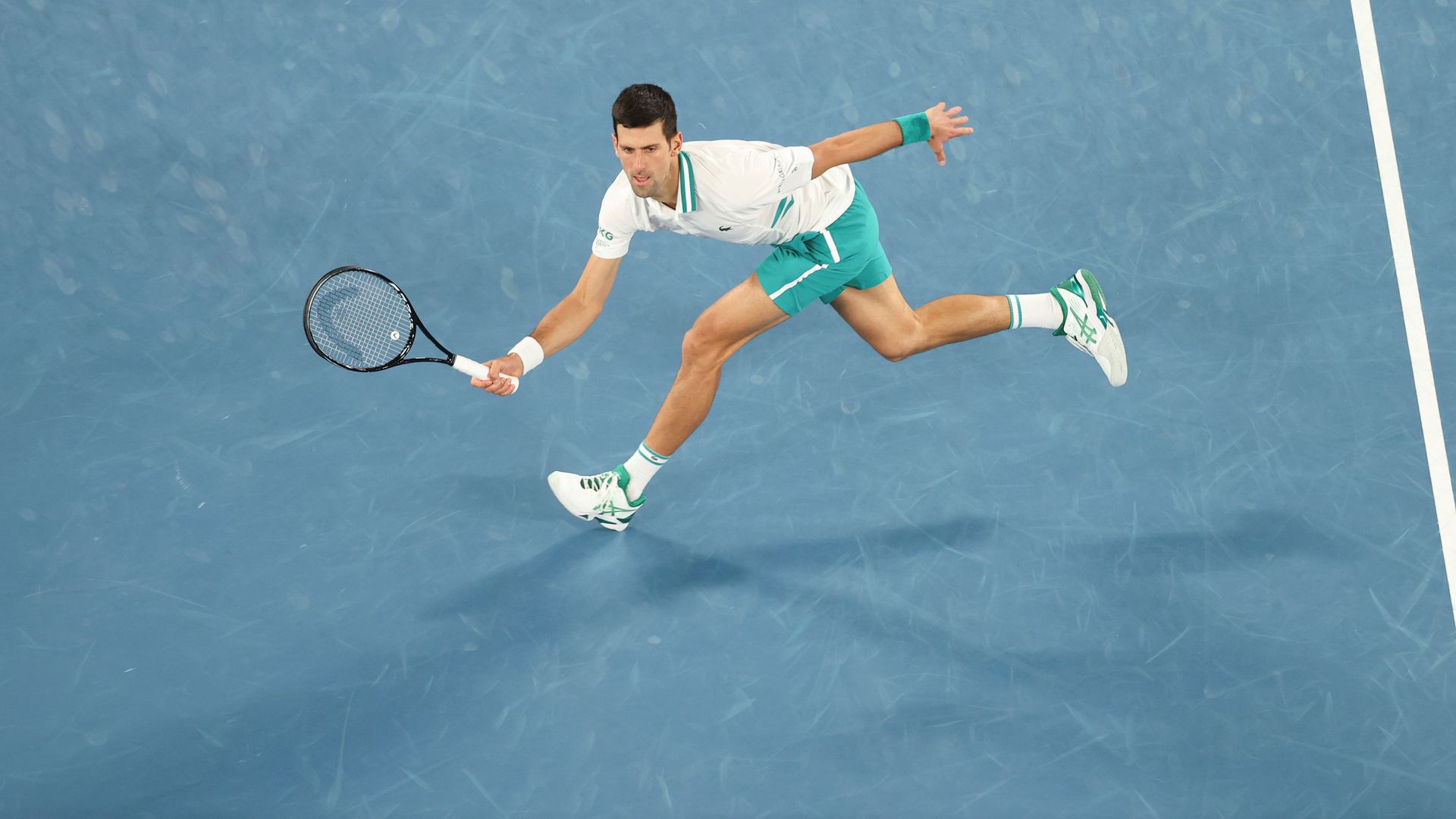Celiac disease is becoming more and more common. This autoimmune disorder is characterized by an intolerance to gluten.
If you have been diagnosed with celiac disease, you probably have many questions. You are wondering what has gluten in it, and how much your lifestyle will have to change.
Luckily, you can still be active even with gluten intolerance. In fact, several professional athletes have been open about their struggles with celiac disease.
Novak Djokovic
The tennis star, who has won 20 individual Grand Slam titles, was first diagnosed with celiac disease when his doctor discovered that Djokovic's resistance decreased when he held bread against his stomach.
Djokovic grew up in his parent's pizza shop, yet he has quickly embraced the gluten-free lifestyle. In fact, in his book, Serve To Win, he encouraged readers to cut gluten out of their diets.
Djokovic credited his meal plan with helping him avoid injuries. When he tried adding gluten back into his diet, he felt dizzy and sluggish almost immediately.
He thus continued to eat gluten-free. In the years after his celiac diagnosis, he transitioned to a plant-based, mostly vegan diet.
Jenn Suhr
Suhr has not let her celiac disease slow her down. She was one of the top pole vaulters in the world, winning a silver medal at the 2008 Beijing Olympics. She followed that up with a gold medal four years later.
Suhr was diagnosed with celiac disease between these two Olympic appearances. She first suspected something was wrong when she began experiencing fatigue and muscle cramping in her toes and calves.
She did research online and determined a gluten allergy may be the cause of her symptoms. Suhr thus removed gluten from her diet and immediately noticed a difference in her health. Her doctor then confirmed the gluten intolerance in 2010.
Suhr admitted that following a gluten-free diet requires a lot of planning and diligence, particularly when food shopping. Traveling abroad presents even more challenges since foreign food labels do not always list which items are gluten-free.
Suhr thus learned to pack some go-to gluten-free items in her bag wherever she goes: rice, canned chicken, granola bars, and crackers.
In an interview after her Olympic victory, Suhr encouraged young athletes with celiac disease to continue training. She also recommended shopping at stores with dedicated gluten-free sections.
Eve Muirhead
Muirhead won an Olympic bronze medal and three World Championship medals, including a gold, as part of Great Britain's and Scotland's women's curling teams.
Shortly after that 2013 gold medal, she started suffering from bloating, weight loss, and digestive issues. Tests ultimately revealed that she had celiac disease.
Muirhead spoke publicly about the diagnosis in 2015, revealing that she had more energy after removing gluten from her diet.
Muirhead admitted that she slipped up a few times but quickly regretted it later. She noted once instance where she ate a few slices of pizza after a curling contest.
The next morning, she felt stabbing pain in her stomach. She then realized that while it was hard giving up her favorite foods, it was worth it to keep her body healthy.
Her sacrifice paid off, as she won numerous European and World Curling Championship medals in the years after her diagnosis.
Cedric Benson
Benson was a star running back for Texas before the Chicago Bears selected him in the first round of the 2005 NFL Draft.
Benson was inconsistent during his time with the Bears, who eventually released him in 2008. The Cincinnati Bengals signed him a few months later.
Benson later revealed that he had been diagnosed with celiac disease shortly before getting cut by the Bears. Benson said that he had more energy after switching to a gluten-free diet.
This was reflected somewhat in his play on the field, as he had three 1,000-yard rushing seasons with the Bengals. Benson's career ended in 2012, and he sadly passed away from a motorcycle crash in 2019.
***
These athletes proved that you can still live your life after a celiac disease diagnosis. Simply adjust your diet, and you will start feeling better fairly quickly.
You should have more energy and may even accomplish great athletic feats.














